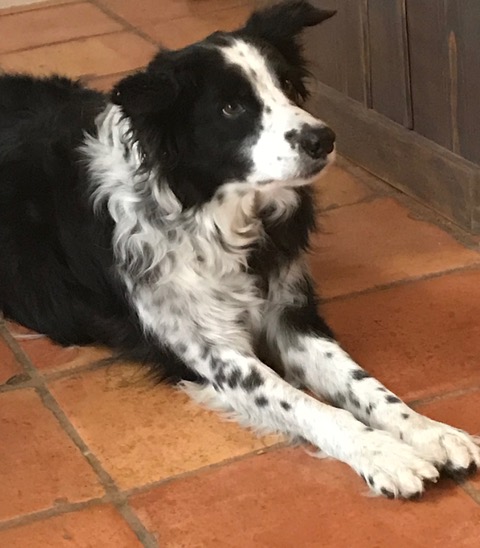Before I was a professional trainer, I consulted with a well-known trainer in the San Francisco Bay area where I was living at the time, about how to help my dog not feel so afraid of other dogs while on a leash. I remember much of what we talked about with a comment being very salient. The trainer mentioned that Laika, my dog, needed to be afraid of me. What? I thought. As I protested she said: “just a little.” For some reason I was thinking about this interaction the other day and I thought to revise that statement.
Immediately another analogy came to mind: Should a young child (or any child) be afraid of their parents? I think we can all agree that absolutely not! How would this help the child in any way? How would this color the parent/child relationship? I grew up being afraid of my own father; an unpredictable and emotional dad. I know first hand how stressful it is to not know when you might be in “trouble” and what the consequences of that might be.
The same holds true for our dogs. Having to be hyper vigilant because they never know if someone will treat them poorly is very stressful and detrimental to their well-being.
The number one concern for our dogs – and any other living being is to remain safe and feel safe. We are all hard wired for safety and survival. So let’s dive a bit deeper. Are there any benefits in our dog being afraid of us? Perhaps some folks and this particular trainer feel that if a dog is afraid of its owner, the owner can instill better discipline. This proposition reeks of “do as I say or else…”
Fifteen years later and knowing what I know now as a professional trainer, I reject the idea that in order to get a compliant dog, the dog must be afraid of us. I much rather rely on what we know about how reinforcers work and how animals learn so that I can stack the odds that my dog will be able to respond to me when needed versus using fear and intimidation as my “weapons” of choice. In addition, the notion that our dogs must comply with every request of our whim is really misplaced. How would we like it if we were expected to comply with every single demand someone placed on us regardless of what our needs at the moment were?
My point is that we must strike a balance in living cooperatively and harmoniously with our dogs and keeping a clean household and everyone safe. Sure, there are times that we need the dog to mind us because their safety or the safety of someone else is at stake. There are also certain “rules” that we need our dogs to learn and follow such as where to eliminate, respect our property and the like. But we must also consider that dogs have their own needs that must be taken into account.
I had an incident recently with one of my neighbor’s dogs when I was working at my place with a client’s dog that happen to be afraid of other dogs. It was an unpleasant experience for everyone involved, but not much more than that. Even before I had finished the session, my neighbor had left a very apologetic message on my voicemail. She apologized profusely adding that she was really angry at her dogs because they had failed to come back when she called them. I called her and told her that actually her dogs had responded how most dogs would have.
This situation illustrates the importance of having realistic expectations. Can we see dogs for who they are? Can we work with them and not against them? Can we refrain from blaming them when they behave like normal dogs? Can we refrain from taking it out on them because we failed to train them properly or at least manage them as needed?
These are important notions that I think we must contemplate. Who do we want to be in relation to our dogs? The goal here as I see it, is to invest in learning about them. Invest in finding ways to communicate with them and to engage with them in a manner that supports their true nature. That we adjust our expectations and that we also take responsibility for our lack of training of them. We are the adults in this equation. We chose to bring them into our lives. So the answer is no! Your dog does not need to be afraid of you- not even a little. Instead invest in the relationship so that it’s one built on knowledge and respect for your dog, you both will reap the benefits.

